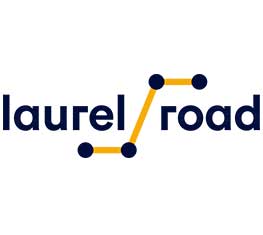The professional home for health service psychologists.
Join a community of 15,000 psychologists and trainees.
Learn it today. Apply it tomorrow.
Connecting you to what you need in your career.
Making a difference.
Peter, S. C., Ginley, M. K., & Pfund, R. A. (2020). Assessment and Treatment of Internet Gaming Disorder. Journal of Health Service Psychology, 46(1), 29–36. https://doi.org/10.1007/s42843-020-00005-2
Among both youth and adults, video gaming is a rapidly growing recreational activity. The American Psychiatric Association and the World Health Organization have identified problematic video gaming behavior as a clinical concern in need of further research and have conceptualized this condition as a behavioral addiction. Empirically validated assessment tools may aid in case conceptualization, and cognitive-behavioral techniques have accrued some evidence supporting their efficacy when targeting internet gaming disorder. Clinicians should consider employing goal setting, behavior tracking, and functional analyses, and should consider increasing alternative pleasurable activities, incentivizing specific behavior changes, and integrating caregivers into treatment when working with adolescents.
American Psychiatric Association. (2013). Diagnostic and statistical manual of mental disorders (5th ed.). https://doi.org/10.1176/appi.books.9780890425596
Apperley, T. H. (2006). Genre and game studies: Toward a critical approach to video game genres. Simulation & Gaming, 37(1), 6-23.
Bean, A. M. (2019). Working therapeutically with video gamers and their families. Journal of Health Service Psychology, 45(2), 40-46.
Billieux, J., Flayelle, M., Rumpf, H. J., & Stein, D. J. (2019). High involvement versus pathological involvement in video games: A crucial distinction for ensuring the validity and utility of gaming disorder. Current Addiction Reports, 6(3), 323-330.
Brooks, G. A., & Clark, L. (2019). Associations between loot box use, problematic gaming and gambling, and gambling-related cognitions. Addictive Behaviors, 96, 26-34.
Chambless, D.L. & Hollon, S.D. (1998). Defining empirically supported therapists. Journal of Consulting & Clinical Psychology, 66, 7-18.
Dutra, L., Stathopoulou, G., Baden, S.L., Levro, T.M., Powers, M.B. and Otto, M.W. (2008). A meta-analytic review of psychosocial interventions for substance use disorders. American Journal of Psychiatry, 165, 179-187. doi: 10.1176/appi.ajp.2007.06111851.
Entertainment Software Association (ESA). (2019). Essential facts about the computer and video gaming industry. https://www.theesa.com/wp-content/uploads/2019/05/ESA_Essential_facts_2019_final.pdf
Gebauer, L., LaBrie, R., & Shaffer, H. J. (2010). Optimizing DSM-IV-TR classification accuracy: A brief biosocial screen for detecting current gambling disorders among gamblers in the general household population. The Canadian Journal of Psychiatry, 55(2), 82-90.
Gentile, D. (2009). Pathological video-game use among youth ages 8 to 18: A national study. Psychological Science, 20(5), 594-602.
Hamari, J., & Sjöblom, M. (2017). What is eSports and why do people watch it?. Internet research, 27(2), 211-232.
Jo, Y. S., Bhang, S. Y., Choi, J. S., Lee, H. K., Lee, S. Y., & Kweon, Y. S. (2019). Clinical characteristics of diagnosis for Internet Gaming Disorder: Comparison of DSM-5 IGD and ICD-11 GD diagnosis. Journal of Clinical Medicine, 8(7), 945.
King, D. L., Delfabbro, P. H., Wu, A. M. S., Doh, Y. Y., Kuss, D. J., Pallesen, S., Mentzoni, R., Carragher, N., & Sakuma, H. (2017). Treatment of Internet gaming disorder: An international systematic review and CONSORT evaluation. Clinical Psychology Review, 54, 123-133.
Koo, H. J., Han, D. H., Park, S. Y., & Kwon, J. H. (2017). The structured clinical interview for DSM-5 Internet gaming disorder: Development and validation for diagnosing IGD in adolescents. Psychiatry investigation, 14(1), 21-29.
Lemmens, J. S., & Hendriks, S. J. (2016). Addictive online games: Examining the relationship between game genres and Internet gaming disorder. Cyberpsychology, Behavior, and Social Networking, 19(4), 270-276.
Li, W., Mills, D., & Nower, L. (2019). The relationship of loot box purchases to problem video gaming and problem gambling. Addictive Behaviors, 97, 27-34.
Petry, N. M., Zajac, K., & Ginley, M. K. (2018). Behavioral addictions as mental disorders: to be or not to be?. Annual Review of Clinical Psychology, 14, 399-423.
Petry, N. M. (2019). Pause and reset: A parent’s guide to preventing and overcoming problems with gaming. Oxford University Press.
Pfund, R. A., & Ginley, M. K. (2019). Assessment and treatment of gambling behavior. Journal of Health Service Psychology, 45, 81-89.
Pontes, H. M., Schivinski, B., Sindermann, C., Li, M., Becker, B., Zhou, M., & Montag, C. (2019). Measurement and conceptualization of Gaming Disorder according to the World Health Organization framework: The development of the Gaming Disorder Test. International Journal of Mental Health and Addiction, 1-21.
Pontes, H.M. & Griffiths, M.D (2015). New Concepts, Old Known Issues: The DMS-5 and Internet Gaming Disorder and its Assessment. In J. Bishop (Ed.) Psychological and Social Implications Surrounding Internet and Gaming Addiction (pp. 16-30). Hershey, PA: Information Science Reference.
Robinson, S. M., Sobell, L. C., Sobell, M. B., & Leo, G. I. (2014). Reliability of the Timeline Followback for cocaine, cannabis, and cigarette use. Psychology of addictive behaviors, 28(1), 154-162.
Stevens, M. W. R., King, D. L., Dorstyn, D., & Delfabbro, P. H. (2019). Cognitive-behavioral therapy for Internet gaming disorder: A systematic review and meta-analysis. Clinical Psychology & Psychotherapy, 26, 191-203.
Sobell, L. C., & Sobell, M. B. (2008). Alcohol Timeline Followback (TLFB). In American Psychiatric Association (Ed.), Textbook of Psychiatric Measures (pp. 477−479). Washington, DC: American Psychiatric Association.
Stea, J. N., Hodgins, D. C., & Fung, T. (2015). Abstinence versus moderation goals in brief motivational treatment for pathological gambling. Journal of Gambling Studies, 31(3), 1029-1045.
Van Rooij, A. J., Kuss, D. J., Griffiths, M. D., Shorter, G. W., Schoenmakers, T. M., & Van De Mheen, D. (2014). The (co-) occurrence of problematic video gaming, substance use, and psychosocial problems in adolescents. Journal of Behavioral Addictions, 3(3), 157-165.
Weinstock, J., Whelan, J. P., & Meyers, A. W. (2004). Behavioral assessment of gambling: an application of the timeline followback method. Psychological Assessment, 16(1), 72-80.
Winkler, A., Dörsing, B., Rief, W., Shen, Y., Glombiewski, J. A. (2013). Treatment of Internet addiction: A meta-analysis. Clinical Psychology Review, 33, 317-329.
Wittek, C. T., Finserås, T. R., Pallesen, S., Mentzoni, R. A., Hanss, D., Griffiths, M. D., & Molde, H. (2016). Prevalence and predictors of video game addiction: A study based on a national representative sample of gamers. International Journal of Mental Health and Addiction, 14(5), 672-686.
World Health Organization. (2018). International classification of diseases for mortality and morbidity statistics (11th Revision). https://icd.who.int/browse11/l-m/en
Zajac, K., Ginley, M. K., & Chang, R. (2019). Treatment of Internet gaming disorder: A systematic review of the evidence. Expert Review of Neurotherapeutics, 20, 85-93. https://doi.org/10.1080/14737175.2020.1671824
Zajac, K., Ginley, M. K., Chang, R., & Petry, N. M. (2017). Treatments for Internet gaming disorder and Internet addiction: A systematic review. Psychology of Addictive Behaviors, 31, 979-994.
Copyright © 2025 All rights reserved. National Register of Health Service Psychologists








